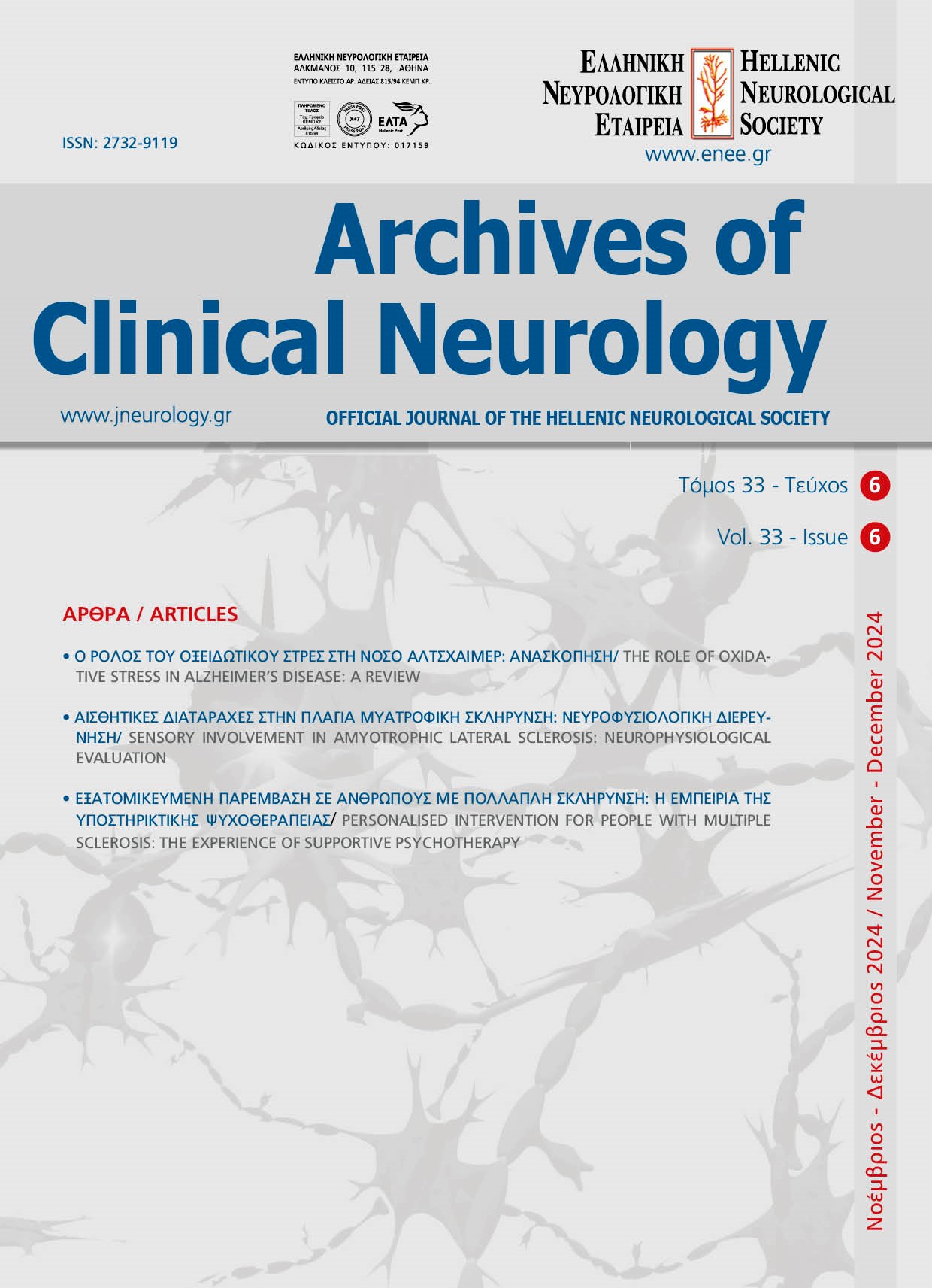THE ROLE OF OXIDATIVE STRESS IN ALZHEIMER'S DISEASE. Α REVIEW
Keywords:
oxidative stress, aging, Alzheimer's disease, mitochondria, free radicalsAbstract
The brain is particularly susceptible to oxidative stress and this leads to widespread damage from the generation of toxic products associated with aging such as toxic metal levels, DNA damage, and deficits in protein metabolism. In Alzheimer's disease (AD) high amounts of reactive oxygen species and bioactive metals such as copper, iron, zinc, and magnesium are detected in the brain, which can lead to the accumulation of β-amyloid in plaques and tau protein in neurofibrillary tangles.
The purpose of this paper is to provide a review of the literature on the role of oxidative stress in the progression of aging and Alzheimer's disease, starting with the production of reactive oxygen species as byproducts of mitochondrial respiration.
Oxidative stress plays a key role in Alzheimer's disease mainly through the production of free radicals produced by dysfunctional mitochondria as a by-product of respiration, leading to DNA damage, mainly mitochondrial, that far exceeds the damage in the aged brain. Dysfunctional DNA repair further contributes to disease progression. Oxidative stress can additionally induce epigenetic modifications. Antioxidant treatments affect cognition in both aging and Alzheimer's disease.
Combinations of antioxidant treatments with caution to dosage and duration of treatment since negative effects are sometimes described, a diet rich in antioxidants, a healthy lifestyle, and physical exercise must be applied carefully to be beneficial.


